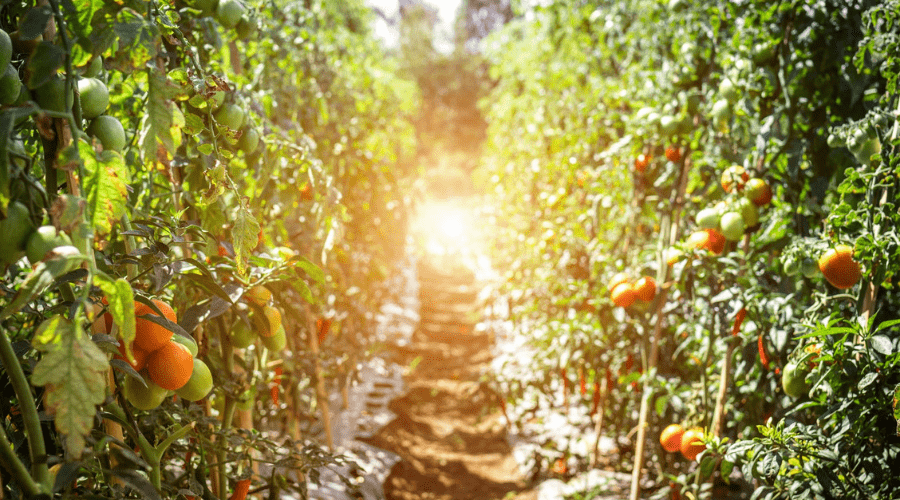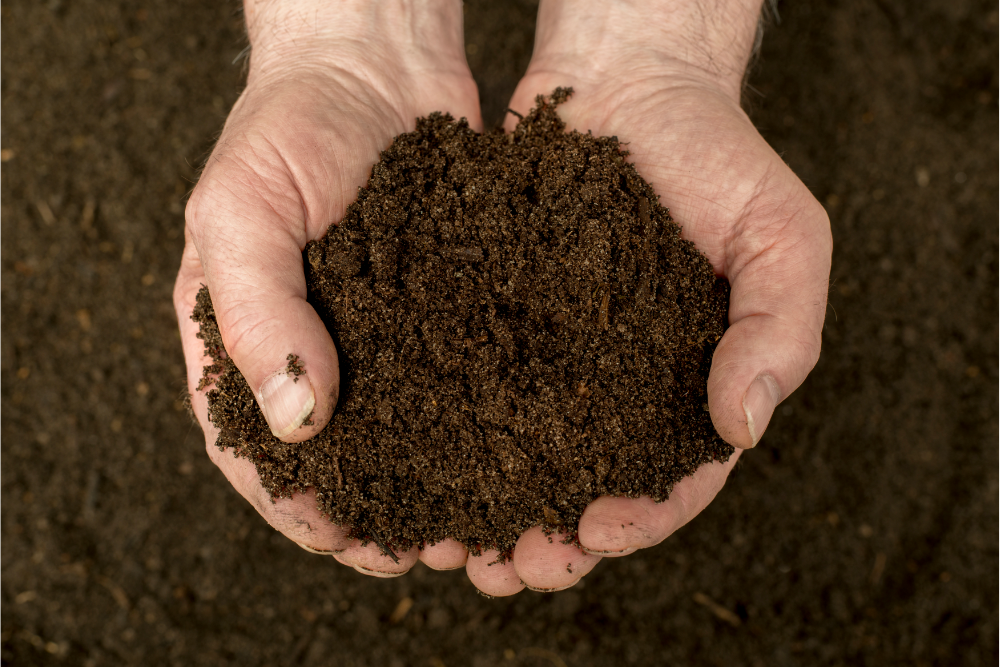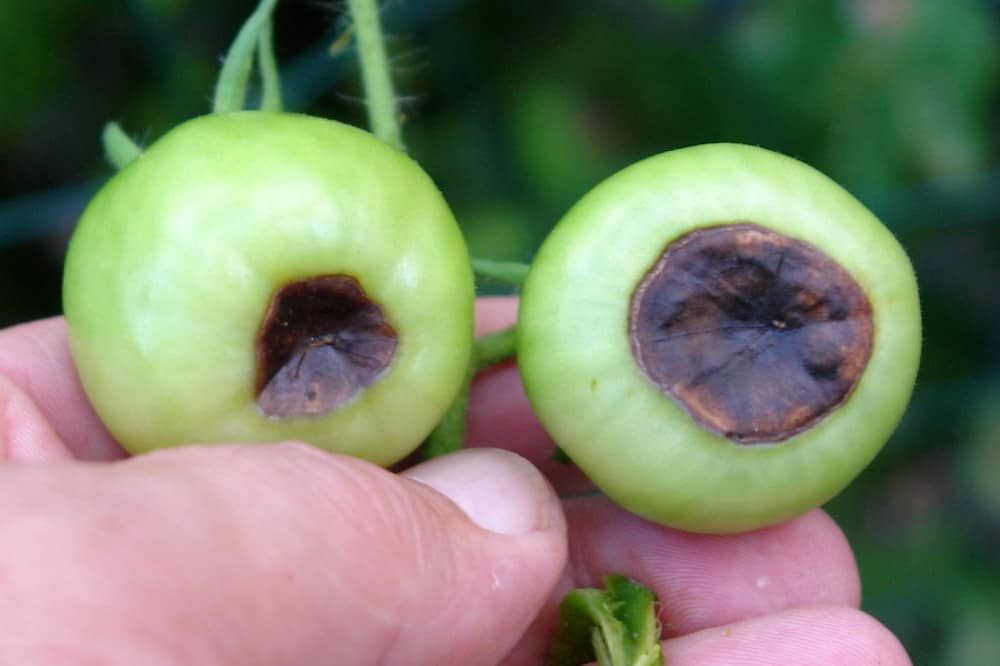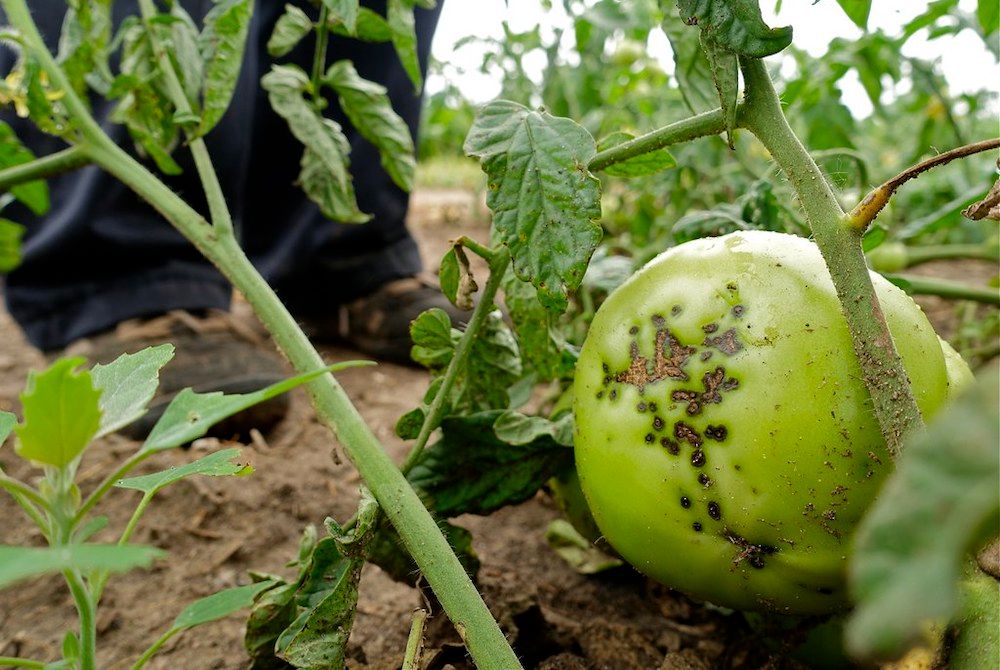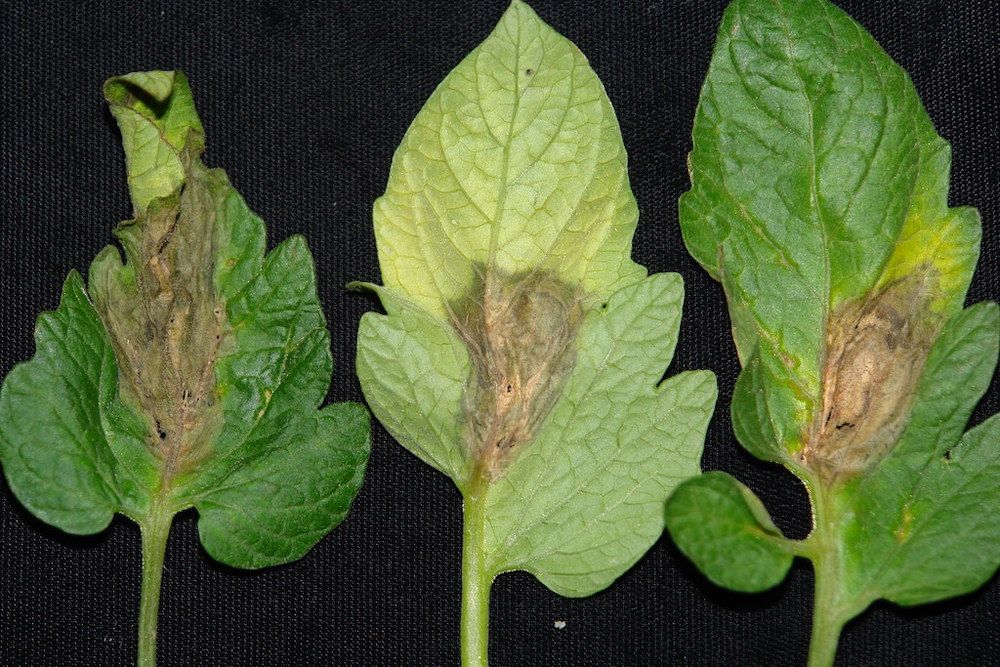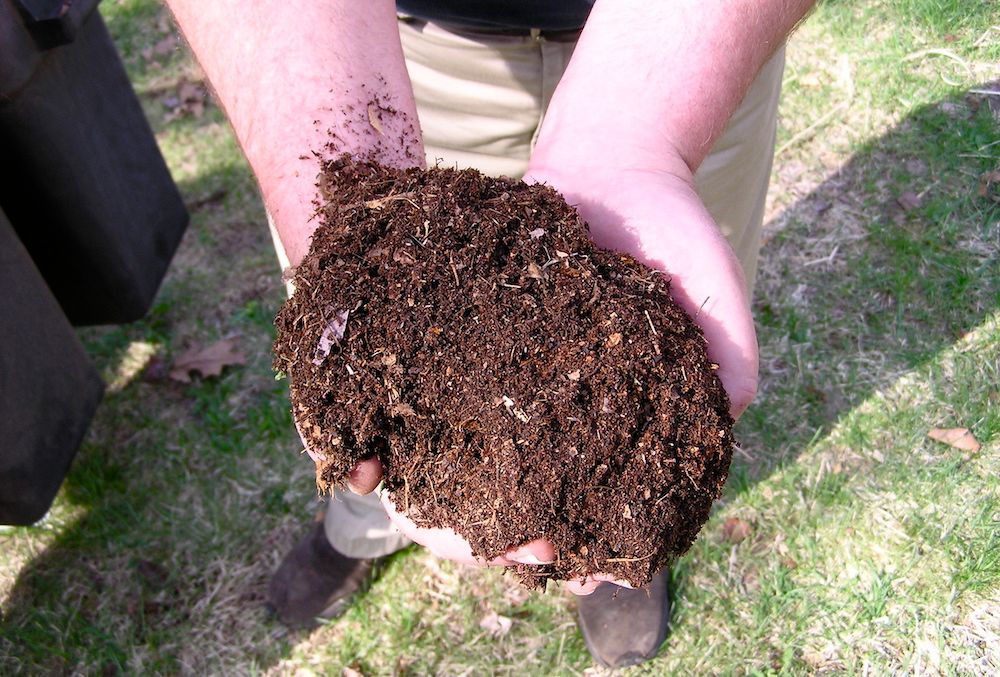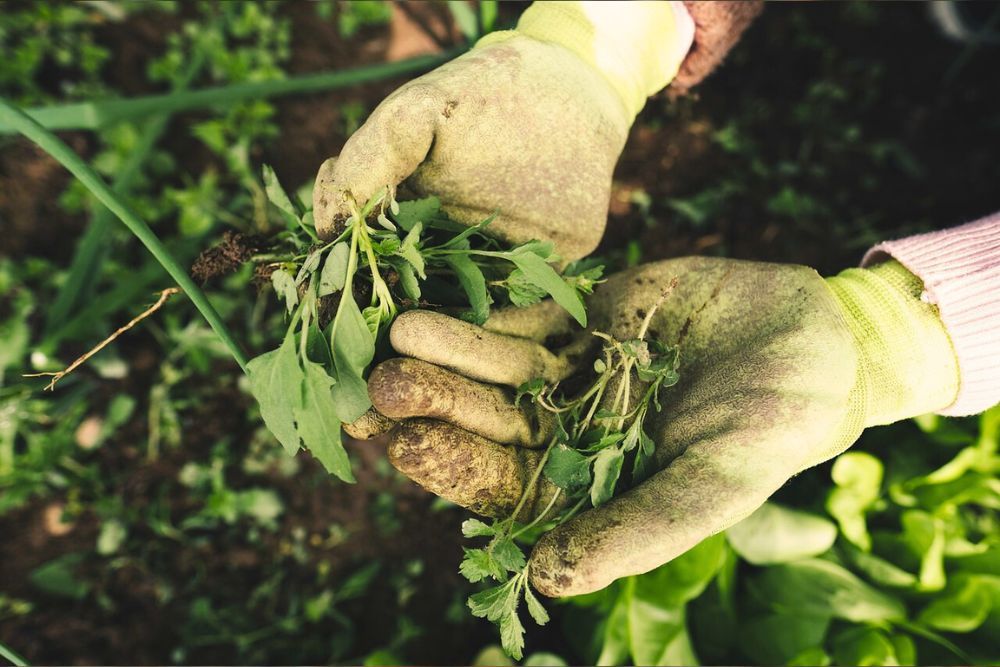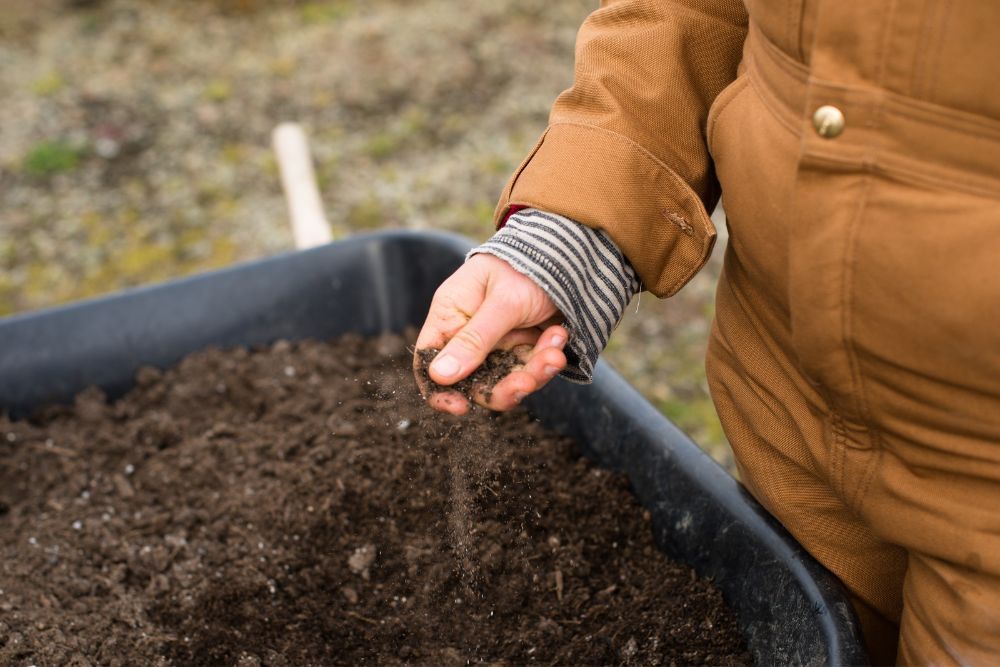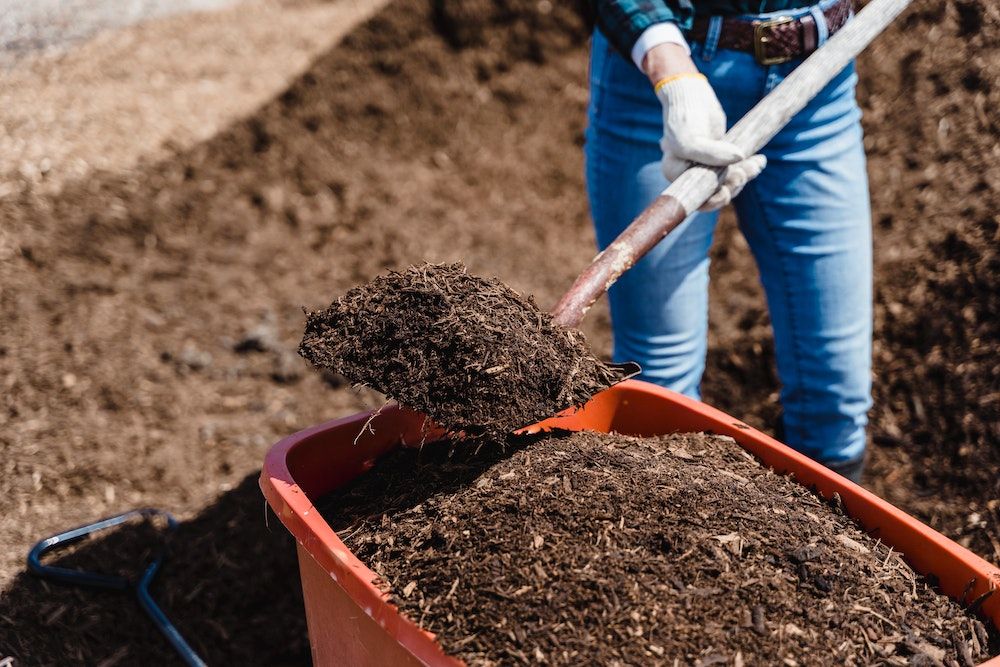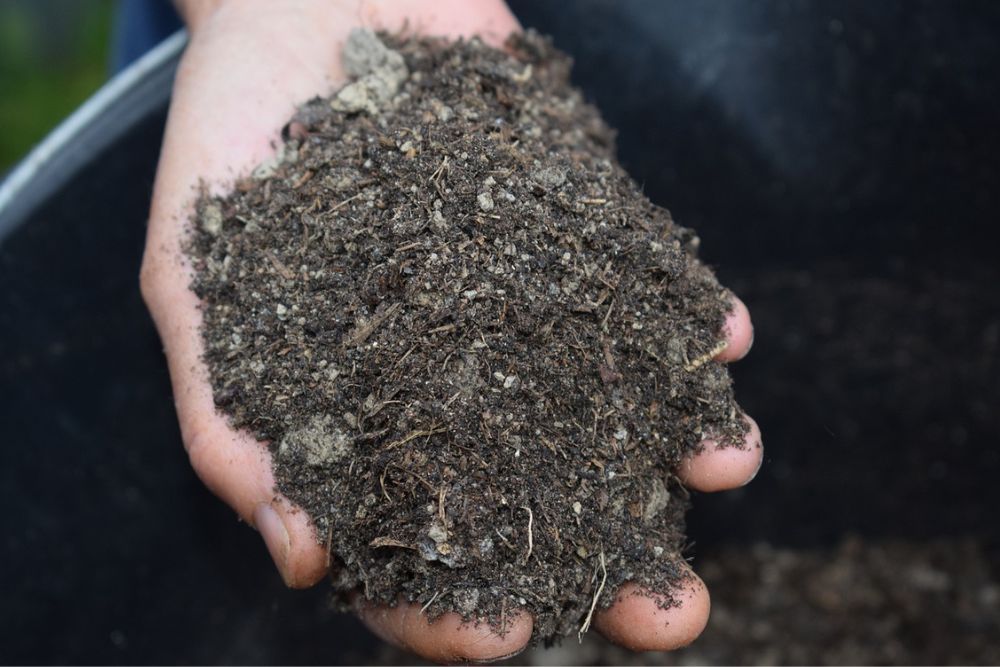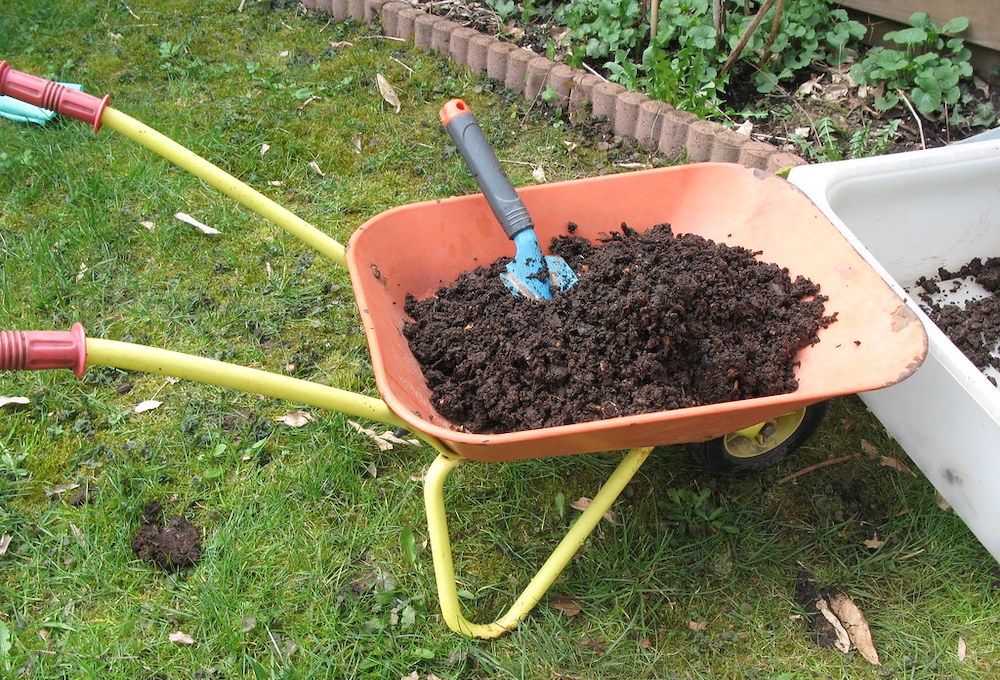Tomatoes are one of the most popular vegetables grown worldwide, and gardeners are constantly searching for effective methods to improve their growth and yield. The extensive use of chemical fertilizers, however, has negatively impacted soil fertility and the quality of tomato crops.
As a result, there is a growing interest in finding alternative options that are safe for the environment and produce healthy and productive tomato plants. One such alternative is mushroom compost, which has gained popularity for its ability to enrich the soil and provide essential nutrients for plant growth.
Learn more about mushroom compost, its benefits, how to use it, and the precautions you must take beforehand.
Understanding Mushroom Compost
Spent mushroom compost (SMC), or mushroom soil or substrate, is a popular organic amendment in gardening and agriculture. Contrary to popular belief, mushroom compost does not contain actual mushrooms.
It is a mixture of various organic materials such as straw, hay, chicken manure, peat moss, corncobs, and others. The specific composition may vary depending on the source. It contains valuable nutrients and organic matter beneficial to various agricultural and non-agricultural sectors.
With proper pre-treatment, SMC can partially or entirely replace growing media for economically significant horticultural crops. It serves as a source of carbon, nitrogen, and other essential elements like phosphorus and potassium.
Besides improving soil fertility, SMC is an excellent soil conditioner for fruits, vegetables, flowers, and foliage crops. The process of producing mushroom compost involves combining these organic materials and allowing them to undergo decomposition, resulting in the finished compost.
This process takes around 30 days and results in a dark, soil-like substance that is rich in nutrients and beneficial microorganisms.
Benefits of Mushroom Compost for Tomato Growth
Using mushroom compost as an amendment for tomato plants can offer several benefits. Let's explore the common problems associated with growing tomatoes and how mushroom compost can help address them.
1. Blossom End Rot
Blossom end rot is a common issue in tomato plants. It is characterized by dark blotches at the bottom of the fruit. It is often caused by a lack of sufficient water or calcium in the soil.
Mushroom compost helps retain moisture in the soil, reducing the risk of dry-out and providing a steady supply of water to the plants. Additionally, it is rich in calcium, which is essential for proper fruit development and can help prevent blossom end rot.
2. Tomato Blight
Tomato blight is a fungal disease that can affect tomato plants, causing the fruits and leaves to rot prematurely. While most tomato varieties are resistant to blight, certain variants grown in wet climates may be susceptible.
Mushroom compost can act as a protective barrier, helping to prevent the spread of fungal diseases like blight. Applying liquid mushroom compost as a spray can help protect plants from harmful pathogens and maintain their overall health.
3. Mold
Mold is another common problem that tomato plants can encounter, especially on the leaves. It can contribute to the loss of tomatoes and hinder plant growth. Mushroom compost, when used as a mulch, can help prevent mold growth by improving soil drainage and reducing moisture levels.
Additionally, the beneficial microorganisms present in mushroom compost can help suppress the growth of harmful pathogens in the soil.
4. Nutrient-Rich Soil
One of the key advantages of using mushroom compost is its nutrient content. It is a rich source of essential nutrients like nitrogen, phosphorus, and potassium, which are vital for plant growth.
When incorporated into the soil, mushroom compost slowly releases these nutrients, providing a steady supply of food for tomato plants throughout their growth cycle. This helps promote healthy foliage, strong root development, and overall plant vigor.
5. Weed Control
Weeds can compete with tomato plants for nutrients, water, and sunlight, affecting their growth and productivity. Mushroom compost can act as a natural weed suppressant when used as a mulch.
By creating a thick layer of compost around the plants, weed growth is inhibited, reducing the need for manual weed removal and minimizing the competition between weeds and tomatoes.
6. Soil Structure and pH Balance
Mushroom compost can improve soil structure and enhance its water-holding capacity. It helps loosen compacted soil, allowing better root penetration and oxygen supply. This is particularly beneficial for tomatoes, as they require well-drained soil for optimal growth.
Additionally, mushroom compost has alkaline properties, which can help raise the pH level of acidic soils. Maintaining the proper pH balance is crucial for nutrient availability and nutrient uptake by tomato plants.
7. Organic and Environmentally Friendly
Mushroom compost is an organic and environmentally friendly soil amendment. It is made from natural and sustainable materials like straw, hay, and chicken manure.
Using mushroom compost eliminates the need for synthetic fertilizers and reduces the risk of harmful chemicals leaching into the soil and groundwater. It is a safe and sustainable option for gardeners who prioritize organic gardening practices.
How to Use Mushroom Compost for Tomatoes
Now that you understand the advantages of mushroom compost for tomato growth, it's important to know how to effectively incorporate it into your gardening routine.
1. Mixing with Garden Soil
To use mushroom compost for tomato plants, it is recommended to mix it with the existing garden soil. Start by preparing the planting area and removing any weeds or debris. Add the desired amount of mushroom compost to the soil and mix it thoroughly using a garden fork or shovel.
Aim for a ratio of approximately 25% mushroom compost to 75% soil. This ensures a balanced nutrient composition and avoids the risk of burning young plants with high soluble salt levels.
2. Creating a Mulch Layer
Alternatively, you can use mushroom compost as mulch around tomato plants. Spread a 1 to 3-inch layer of compost evenly on the top layer of the soil, leaving a few inches of space around the base of the plants to prevent direct contact.
The mulch helps conserve moisture, suppress weeds, and slowly release nutrients into the soil. It also acts as an insulating layer, protecting the roots from extreme temperatures.
3. Compost Tea
Compost tea, derived from mushroom compost, can be used as a natural foliar spray to promote plant health and protect against diseases. To make compost tea, add a trowel of mushroom compost to a bucket of water and let it steep for a day or two.
The resulting liquid can then be applied to the foliage of tomato plants using a sprayer. Compost tea provides a concentrated dose of nutrients and beneficial microorganisms, strengthening the plants' natural defenses and enhancing growth.
Precautions When Using Mushroom Compost
While mushroom compost offers numerous benefits for tomato growth, it's important to be mindful of a few precautions:
|
Seedling Sensitivity |
Newly germinating seedlings and young tomato plants can be sensitive to high levels of soluble salts present in fresh mushroom compost. To avoid burning or stunting their growth, it is recommended to mix the compost with garden soil and allow it to sit for a few months before planting. This allows the compost to mature and reduces the risk of salt burn. |
|
Winter Curing |
If you are using freshly applied mushroom compost, allowing it to stand uncovered during the winter is advisable. This process, known as winter curing, helps further break down the organic materials and reduce the risk of burning sensitive plants. By the time spring arrives, the compost will be fully matured and ready for use. |
Mush-ROOM for Growth!
Mushroom compost can be a valuable addition to your tomato gardening routine. Tomato plants greatly benefit from the mushroom compost’s nutrient-rich composition, soil structure improvement, and natural disease-fighting properties.
By incorporating mushroom compost into the soil or using it as a mulch, you can enhance the growth, productivity, and overall health of your tomato plants in an organic and environmentally friendly manner. Remember to follow the recommended precautions and adjust the usage based on the specific needs of your plants.
Have you ever used mushroom compost for your tomato plants? Share your experiences below!

